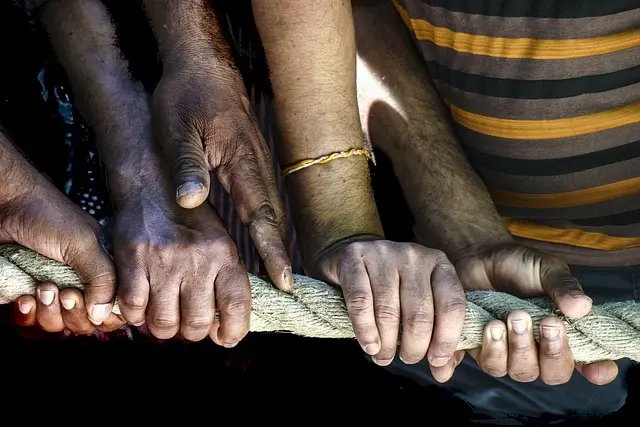In a world that seems more connected than ever, defending human rights remains a constant challenge. Although we’ve made significant progress in equality and justice, the reality shows us that in many parts of the world, fundamental rights are still violated. But what does solidarity have to do with all of this? A lot more than you might think!
What are Human Rights?
First, let’s remember what human rights are. They are the basic freedoms and guarantees that we all should have simply for being human. These include rights like life, freedom, education, health, and dignity, among many others. Sounds logical, right? But the truth is, not everyone has access to these rights equally.
The current challenges
In recent years, we’ve seen how migration crises, armed conflicts, racial discrimination, and violations of free speech jeopardize human rights. Entire countries face political repression, journalists are silenced, indigenous communities are displaced, and access to healthcare is a luxury for millions. These are just a few examples that remind us how fragile these rights can be.
And this is where solidarity comes in. In moments when governments or institutions fail to protect their citizens, solidarity becomes a beacon of hope.
Solidarity as a tool
Solidarity isn’t just a nice word, it’s action. It’s that impulse from a person or community that sees injustice and decides to do something about it. Whether through awareness campaigns, humanitarian aid, international pressure, or simply supporting local causes, solidarity is a powerful way to defend human rights.
A clear example, the global response to the refugee crisis. While millions of people fled wars and persecution, many organizations and ordinary citizens opened their doors, donated resources, and raised their voices to demand change. Although governments haven’t always acted effectively, solidarity has made a real difference for many of these people.
Challenges to Solidarity
However, it’s not easy to stay solidary in such a complex world. One of the biggest challenges is compassion fatigue: we’re so exposed to news about injustice and tragedy that we sometimes become desensitized. Moreover, misinformation and fake news can distort reality, making the most urgent causes take a backseat or be misunderstood.
In some regions, human rights defenders and activists are persecuted and criminalized. Being solidary and speaking up for others can come at a high cost, even at the cost of life. Still, there are individuals and organizations who, despite threats, continue their tireless work to protect the most vulnerable.
How can we be more Solidary?
The good news is that we can all be part of the change. Solidarity doesn’t require grand gestures; sometimes, sharing accurate information, educating those around us on the importance of human rights, or supporting organizations financially already makes a big difference.
We can also be more aware of the struggles happening around us, even in our own communities. Often, human rights violations don’t just occur in distant places but also in our cities and neighborhoods.
Human rights and solidarity go hand in hand. Without collective effort, defending these rights would be much harder. While the road is full of obstacles, solidary action allows us to move toward a fairer world where every person can live with dignity and freedom. The challenge is in our hands, and no matter how small the action seems, everything counts!

